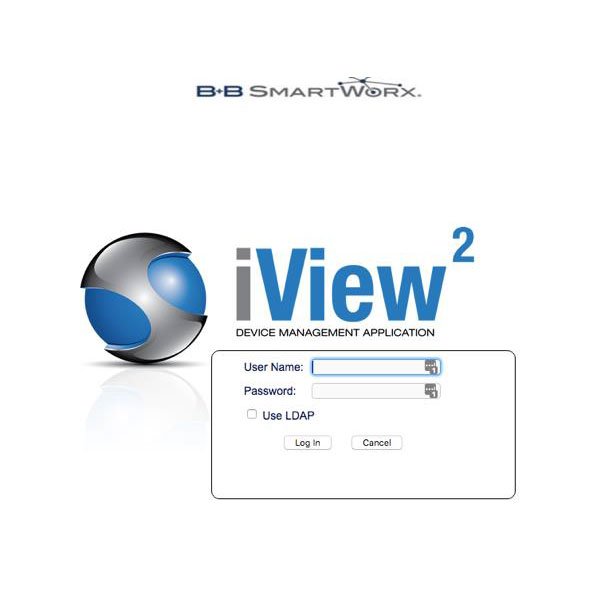1. EXECUTIVE SUMMARY
- CVSS v3 9.8
- ATTENTION: Exploitable remotely/low skill level to exploit
- Vendor: Advantech
- Equipment: iView
- Vulnerabilities: SQL Injection, Path Traversal, Command Injection, Improper Input Validation, Missing Authentication for Critical Function, Improper Access Control
2. RISK EVALUATION
Successful exploitation of these vulnerabilities could allow an attacker to read/modify information, execute arbitrary code, limit system availability, and/or crash the application.
3. TECHNICAL DETAILS
3.1 AFFECTED PRODUCTS
The following versions of iView, a device management application, are affected:
- iView Versions 5.6 and prior
3.2 VULNERABILITY OVERVIEW
3.2.1 IMPROPER NEUTRALIZATION OF SPECIAL ELEMENTS USED IN AN SQL COMMAND (‘SQL INJECTION’) CWE-89
The affected product contains multiple SQL injection vulnerabilities that are vulnerable to the use of an attacker-controlled string in the construction of SQL queries. An attacker could extract user credentials, read or modify information, and remotely execute code.
CVE-2020-14497 has been assigned to this vulnerability. A CVSS v3 base score of 9.8 has been calculated; the CVSS vector string is (AV:N/AC:L/PR:N/UI:N/S:U/C:H/I:H/A:H).
3.2.2 IMPROPER LIMITATION OF A PATHNAME TO A RESTRICTED DIRECTORY (‘PATH TRAVERSAL’) CWE-22
The affected product is vulnerable to multiple path traversal vulnerabilities that could allow an attacker to create/download arbitrary files, limit system availability, and remotely execute code.
CVE-2020-14507 has been assigned to this vulnerability. A CVSS v3 base score of 9.8 has been calculated; the CVSS vector string is (AV:N/AC:L/PR:N/UI:N/S:U/C:H/I:H/A:H).
3.2.3 IMPROPER NEUTRALIZATION OF SPECIAL ELEMENTS USED IN A COMMAND (‘COMMAND INJECTION’) CWE-77
Successful exploitation of this vulnerability may allow an attacker to send a HTTP GET or POST request that creates a command string without any validation. The attacker may then remotely execute code.
CVE-2020-14505 has been assigned to this vulnerability. A CVSS v3 base score of 8.2 has been calculated; the CVSS vector string is (AV:N/AC:L/PR:N/UI:N/S:U/C:N/I:L/A:H).
3.2.4 IMPROPER INPUT VALIDATION CWE-20
Successful exploitation of this vulnerability could allow an attacker to remotely execute arbitrary code.
CVE-2020-14503 has been assigned to this vulnerability. A CVSS v3 base score of 9.8 has been calculated; the CVSS vector string is (AV:N/AC:L/PR:N/UI:N/S:U/C:H/I:H/A:H).
3.2.5 MISSING AUTHENTICATION FOR CRITICAL FUNCTION CWE-306
Successful exploitation of this vulnerability may allow an attacker to obtain the information of the user table, including the administrator credentials in plain text. An attacker may also delete the administrator account.
CVE-2020-14501 has been assigned to this vulnerability. A CVSS v3 base score of 8.2 has been calculated; the CVSS vector string is (AV:N/AC:L/PR:N/UI:N/S:U/C:H/I:N/A:L).
3.2.6 IMPROPER ACCESS CONTROL CWE-284
Successful exploitation of this vulnerability may allow an attacker to obtain all user accounts credentials.
CVE-2020-14499 has been assigned to this vulnerability. A CVSS v3 base score of 7.5 has been calculated; the CVSS vector string is (AV:N/AC:L/PR:N/UI:N/S:U/C:H/I:N/A:N).
3.3 BACKGROUND
- CRITICAL INFRASTRUCTURE SECTORS: Critical Manufacturing, Energy, Water and Wastewater Systems
- COUNTRIES/AREAS DEPLOYED: East Asia, Europe, United States
- COMPANY HEADQUARTERS LOCATION: Taiwan
3.4 RESEARCHER
rgod working with Trend Micro Zero Day Initiative, reported these vulnerabilities to CISA.
4. MITIGATIONS
Advantech has released version 5.7 of iView to address the reported vulnerabilities. Users can download the latest version of iView.
CISA recommends users take defensive measures to minimize the risk of exploitation of this vulnerability. Specifically, users should:
- Minimize network exposure for all control system devices and/or systems, and ensure that they are not accessible from the Internet.
- Locate control system networks and remote devices behind firewalls, and isolate them from the business network.
- When remote access is required, use secure methods, such as Virtual Private Networks (VPNs), recognizing that VPNs may have vulnerabilities and should be updated to the most current version available. Also recognize that VPN is only as secure as the connected devices.
CISA reminds organizations to perform proper impact analysis and risk assessment prior to deploying defensive measures.
CISA also provides a section for control systems security recommended practices on the ICS webpage on us-cert.gov. Several recommended practices are available for reading and download, including Improving Industrial Control Systems Cybersecurity with Defense-in-Depth Strategies.
Additional mitigation guidance and recommended practices are publicly available on the ICS webpage on us-cert.gov in the Technical Information Paper, ICS-TIP-12-146-01B–Targeted Cyber Intrusion Detection and Mitigation Strategies.
Organizations observing any suspected malicious activity should follow their established internal procedures and report their findings to CISA for tracking and correlation against other incidents.
No known public exploits specifically target these vulnerabilities.
Source:


Stay connected